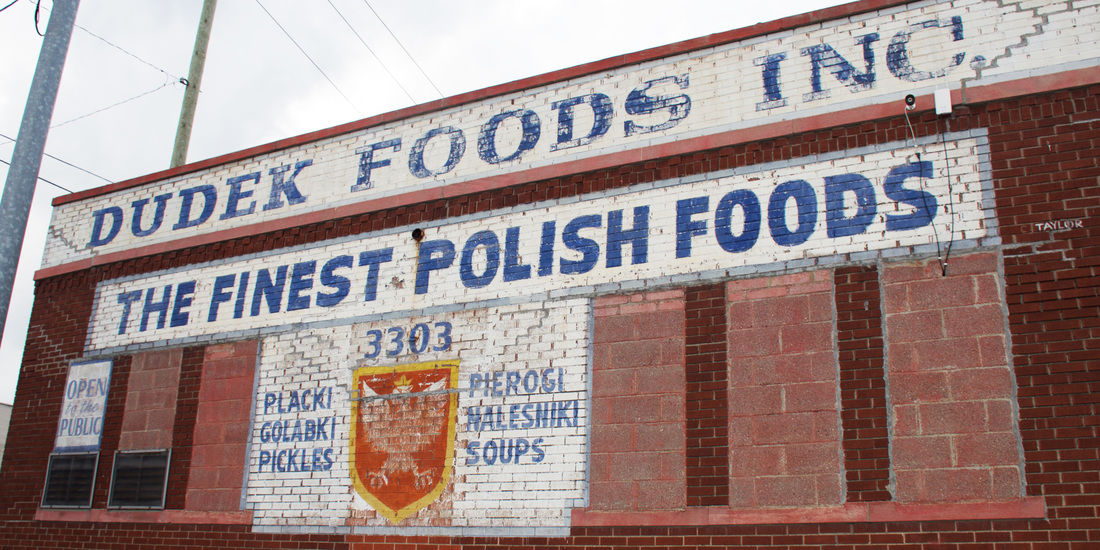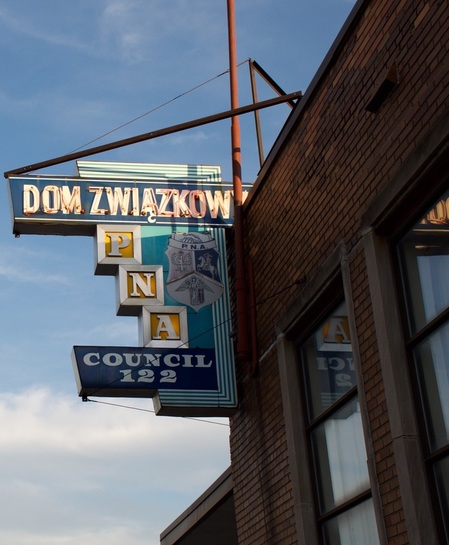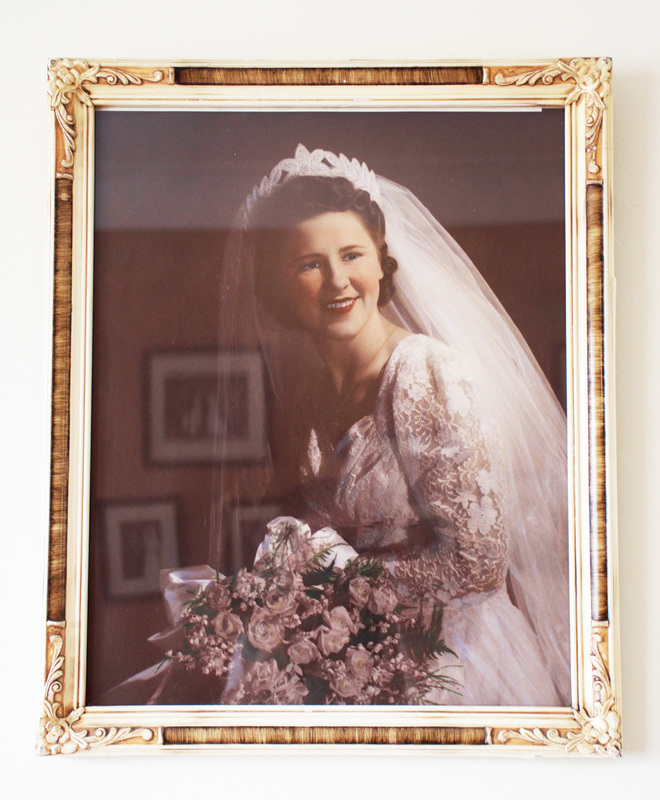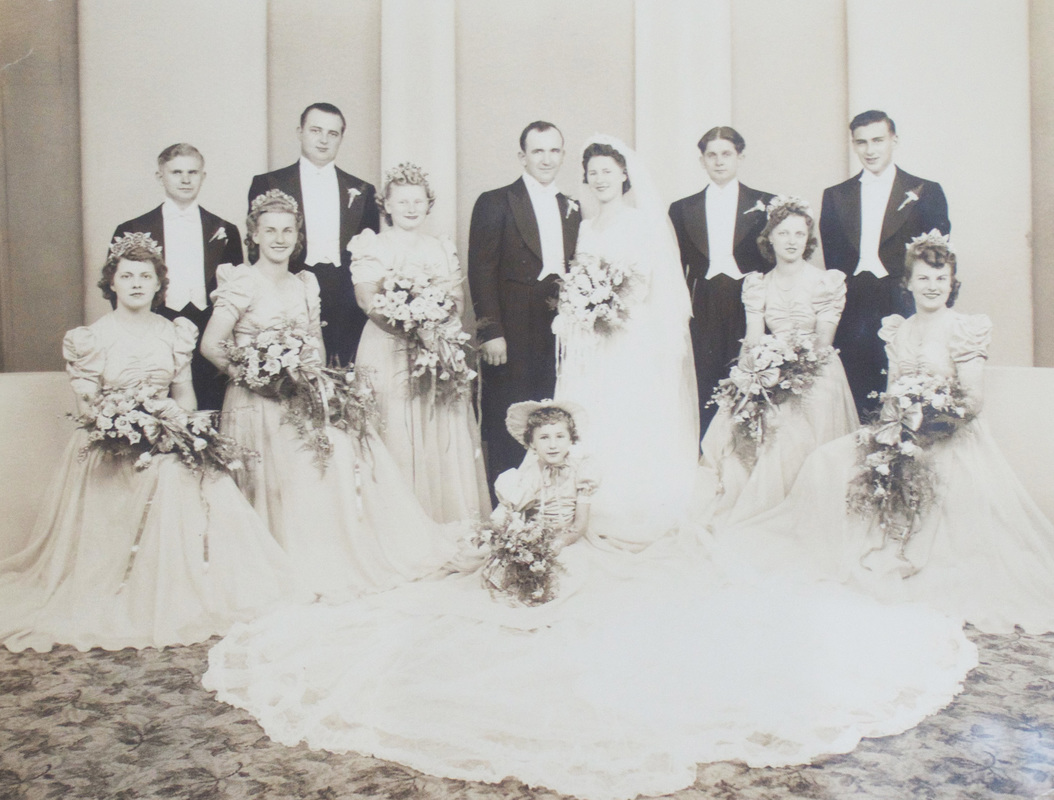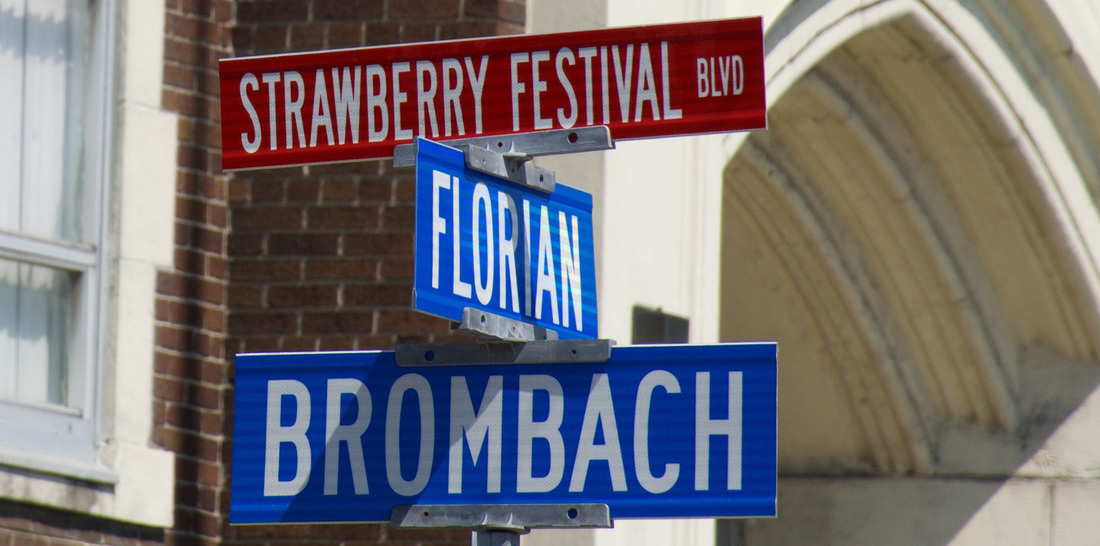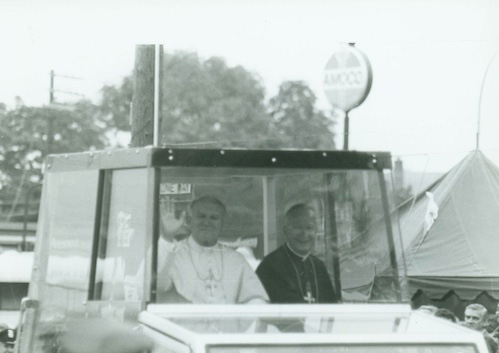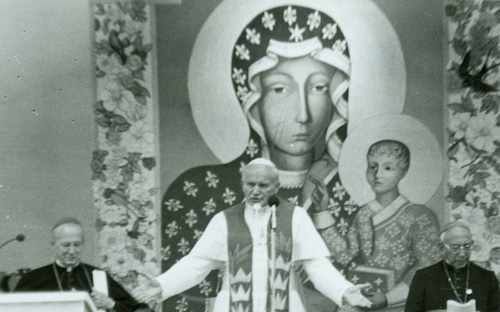Polish Heritage
Hamtramck was known as "Little Poland" for much of the twentieth century. Attracted by the available factory work, Polish immigrants arrived in the city by the thousands in the early twentieth century. By the early 1920s, the Polish Americans controlled the city council and had funded the construction of St. Florian's Catholic Church. Through the 1950s a majority of school-age children reported speaking Polish at home and into the 1980s sections of local papers were still published in Polish. Members of Hamtramck's Polish American population discuss Polish traditions, Catholic culture and practices, and the changing population of the city.
Poland
|
Ted Palac describes his village in the mountains of Poland and the changes that have taken place since he moved to the United States.
|
Hamtramck's Polish Community & History
|
Sophie Yakubowski remembers her high school days, right before the US got involved in the second world war.
|
Ted Palac reflects on his involvement in Hamtramck's Polish community, from PNA Hall and Polish banquets to The Highlander Group and pierogi festivals.
Paczki Day is a Hamtramck tradition that takes place every year on Fat Tuesday. Below, Frank Zacharias and Greg Kowalski reflect on Polish culture and how the packzi celebration has changed.
Frank: Well it’s kind of— it’s kind of wild, you know? That’s when everybody’s Polish, you know? Just like, just like St. Patrick’s Day everybody’s Irish. [Laughs] Everybody’s Polish. And, well, there’s only two bakeries that really make em now in Hamtramck. There’s New Palace and New Martha Washington and they start making em Thursday, no Friday, Saturday, and they start selling but the big day is Paczki Day or Fat Tuesday when they got people lined up and its just like a mad house. And then Post 10, they have a Packzi contest and the bars have different, different goings on where they have entertainment and just like a wild, wild party for a week— for a day, you know and it’s fun, you know? They get their drinking and eating like at Post 10 they have a Paczki eating contest, you know, see how many Paczki you could eat and this one guy he ate like 15 or 16 of em so. It’s fun, you know, it— a lot of people that, that don’t live in, didn’t, never lived in Hamtramck, they come just to see what’s going on, you know, because sometimes they’ll bring busses of people in to look around and, and, you know, get into the action because some bars, you know, they put up tents and make it a big, big celebration, you know, so. But I stay out of it, I— [Laughs] I can’t drink no more so I, I just don’t. But the younger people, that’s, that’s their business. That’s fun, it’s fun, it— but it’s, like I said it’s Fat Tuesday right before Lent so people gotta celebrate, you know? At one time we had like, I think we had a Paczki Parade at one time.
|
Family Stories
|
As a six-time bridesmaid who never married, Adele Wojtkowski describes a traditional Polish wedding. She then talks about the last bride whose wedding she attended, an immigrant from Poland who quickly learned to love the downtown shops and stores in Detroit. As to why Adele never married she says she was too busy traveling and enjoying herself.
|
Sophie Yakubowski recalls what it was like dropping out of high school, getting married, and watching her husband ship out forWorld War II all in less than a year. She describes the challenges of living with her difficult parents-in-law while her husband was overseas.
Sophie: Yeah, within—I got married in September and in January he left to go to the army, yeah. And he stayed there for three years then he came back. And then from there then we lived upstairs and then we moved out and we just kept moving.
|
|
Patty Olko recalls her Polish busha (grandmother) and her favorite parts of Polish culture.
|
|
Greg Kowalski describes his father's daring life as a union leader and factory worker.
|
And [my in-laws] figured that it’s a shame that my mother and father could have had so many kids. They never met [my parents]...They never came to the wedding. So can you imagine how I felt when I had to come and live here? I mean, I wasn’t afraid. Tell them to go to hell and that’s it.
-Sophie Yakubowski
|
Sophie Yakubowski recalls what it was like being one of nine kids just trying to get enough money together to go see a movie.
|
|
Joan Barrios recalls the prejudice she experienced in her Polish family and at church when she married a Mexican man.
|
Catholic Life
|
Frank Zacharias remembers when Pope John Paul II came to town.
Frank: Well, that’s was, that’s another story, that— [Laughs]
Marge: It really was another story. Frank: They expected a ton of people. I mean they expected people over people over— and they didn’t get what they expected. I mean they got people, they got people. And I was like a security guard— they had volunteers to watch the park up on Holbrook and Joseph Campau and, and we were there from maybe 9 o’clock the night before that he was coming so we had to stay up all night on security guard. And, it was where you had to go through, through detectors and everything. Even if you worked there, you went out to, you know, go to the bathroom, you come back, you still had to go get searched, you know, you know. So we’re waiting, we’re waiting and 1, 2 o’clock no busses come in, 3 o’clock in the morning now, no busses, no busses. They had the city sealed off so bad, once you left you almost couldn’t get back in. I mean they got people, they got some people but they had it sectioned off where they were expecting I don’t know how many thousands but they maybe got a third of what they expected. Yeah because some vendors, they had different vendors set up, they just walked away because there was no action. He spoke to the people up on Holbrook because there’s that little— you ever see that statue up there? Yeah, anyway that’s where he talked but like I say it was like a third of the people that they expected. He had that mass at the Silver Dome and I wish I could have went to that but I worked there and I, I was too tired but that mass at the Silver Dome was beautiful. He was like, like a white tornado. That guy, that white little car of his, he— because my wife was looking for the doctor, and, and she went to the doctor, she went to the bathroom at the doctor, she came back, the Pope was gone. That’s how fast that car went, that car went like a, like a bullet. Greg Kowalski explains why as a kid, growing up in a Polish Catholic community isn't so remarkable.
|
Sophie Yakubowski missed church two times in her active life and once was when she was in the hospital giving birth. She discusses of life of deep commitment to the Catholic Church.
Cindy Cervenak describes the rise and call of St. Florian's Strawberry Festival. The festival celebrates the strawberry, the first fruit to be harvested in Poland in the spring. In the 1980s it was the biggest festival in Michigan and while it continues to this day, it tends to only sell about 200 Strawberry pies every year.
|
